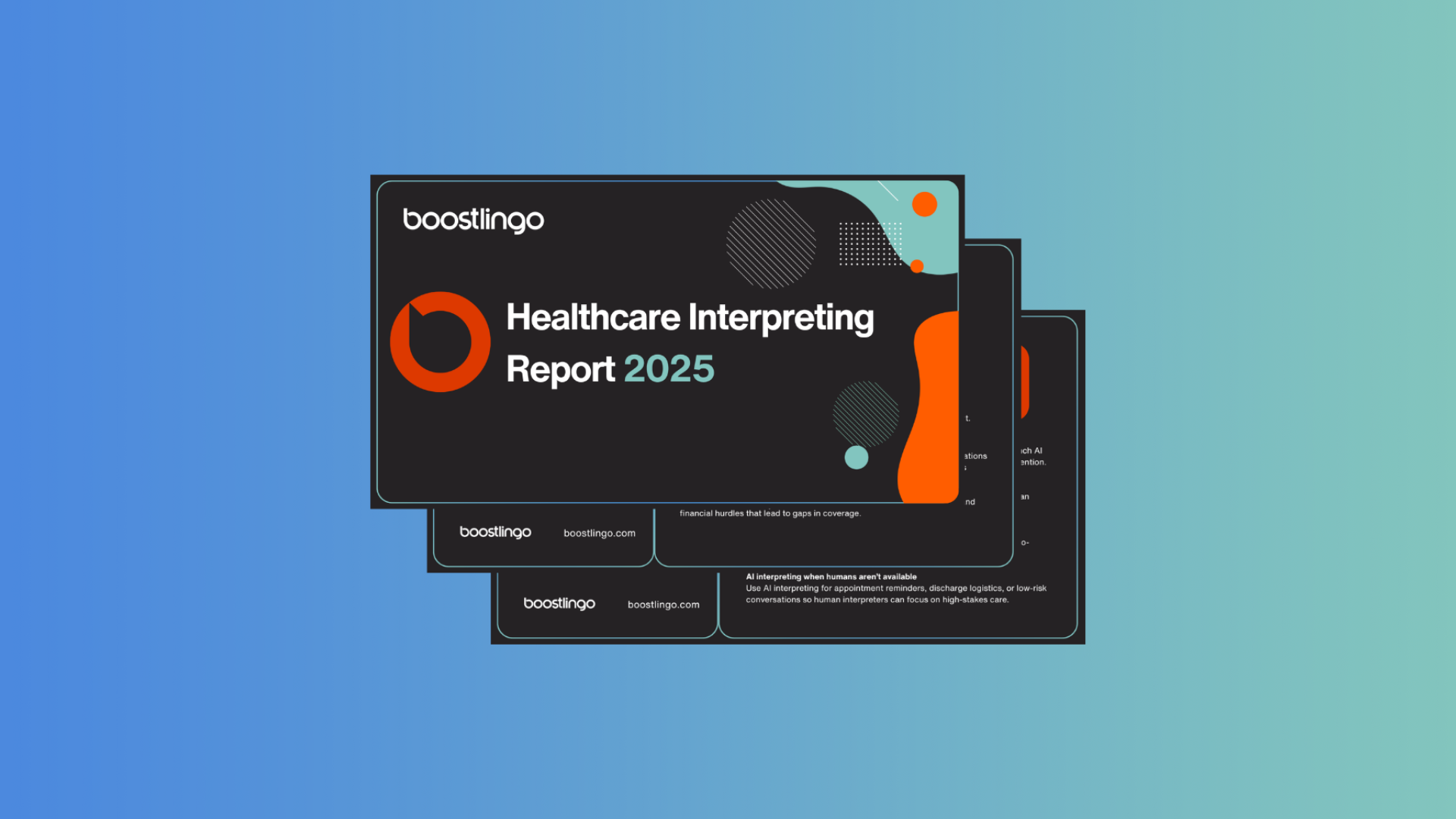Medical interpreters are the conduit to clear communication between limited English proficient (LEP) patients and the hospital system.
Here’s a shocking reality: 54% of hospitals admitted they cared for an LEP patient without a professional interpreter at least once last year. The barriers? Cost, technology integration, and staff training. Meanwhile, communication failures contribute to over 1,700 deaths and $1.7 billion in malpractice costs every five years.
Here are ten facts about professional interpreting services in hospital systems.

The Stakes Are Higher Than You Think
Fact 1: Language Barriers Affect More Patients Than You Realize
One in 11 U.S. residents (that’s 26.5 million people) has limited English proficiency (LEP). Without proper language support, these patients face significant challenges in describing symptoms, understanding care plans, and providing informed consent for medical procedures.
Fact 2: LEP Patients Face Dramatically Higher Health Risks
The statistics are sobering: nearly half (49.1%) of LEP inpatients experience adverse events such as medication errors, falls, or injuries. This risk is substantially higher than what English-proficient patients face, highlighting a critical healthcare equity issue.
Fact 3: Communication Failures Continue to Drive Patient Harm
The Joint Commission documented 1,411 sentinel events in 2023 alone, with inadequate communication during patient handoffs repeatedly cited as a contributing factor. These aren’t just statistics but represent real patients whose safety was compromised by communication breakdowns.
Professional Interpreters Make a Measurable Difference
Fact 4: The ROI of Professional Interpreters Is Undeniable
Here’s where the data gets truly compelling: professional medical interpreters reduce 30-day readmissions by an impressive 39%. When professional interpreters were used during both admission and discharge, readmission rates dropped from 24.3% to 14.9%. Even more striking, the average length of stay was cut by more than half, from 5.1 days to just 2.6 days.
Fact 5: Poor Communication Costs Lives and Money
Miscommunication appears in 30% of malpractice claims, resulting in $1.7 billion in costs and 1,744 deaths over just five years. This data from CRICO’s benchmark analysis makes clear that clear communication isn’t optional.
Understanding Language Demand in Healthcare
Fact 6: Spanish Dominates, But Diversity Is Growing
Among Americans who speak a language other than English at home, 61% speak Spanish, followed by Chinese (5%) and Tagalog (2.5%).
Fact 7: Interpreter Training Matters More Than Bilingual Ability
Professional interpreters reduce medical errors by half compared to ad-hoc solutions or well-meaning “bilingual staff.” Professional training enables interpreters to catch terminology mistakes, dosage mix-ups, and cultural nuances that untrained helpers typically miss—a difference that can save lives.
Technology Is Transforming Medical Interpreting
Fact 8: Video Remote Interpreting Is Surging
One multi-hospital network logged an impressive 50,600 video remote interpreting (VRI) sessions in a single year, reducing average wait times by 37.5% while decreasing reliance on phone interpreting services. This shift reflects hospitals’ growing recognition of VRI’s efficiency and effectiveness.
Fact 9: Interpreting is Becoming Embedded in the EHR
56% of healthcare organizations now have a standardized LEP flag in their electronic health record, and 59% of those say staff use it every time, evidence that language access is moving directly into clinical workflows
Fact 10: AI Is Complementing, Not Replacing, Human Interpreters
While half of U.S. medical practices reported treating at least one LEP patient without any interpreter support in the last 12 months (with 44% citing cost as the main barrier), clinicians are increasingly turning to AI interpreting for low-risk, routine encounters. The key is implementing hybrid models that seamlessly transition to human interpreters when clinical complexity or risk levels increase.
Debunking Common Misconceptions
“Bilingual staff are good enough.” The data tells a different story. Untrained staff frequently omit or add clinical details, significantly elevating malpractice risk and compromising patient safety.
“Interpreter technology is too expensive.” Hospitals deploying on-demand interpreting solutions actually reduce idle time and avoid costly readmissions, quickly offsetting initial technology investments through improved patient outcomes.
“AI will replace interpreters entirely.” Current best practice involves a hybrid approach: AI handles routine dialogues while qualified professionals manage complex, high-stakes care situations that require human judgment and cultural competency.
The Bottom Line
A robust medical interpreter program isn’t a luxury—it’s a patient safety imperative backed by compelling data. The evidence shows a clear return on investment through lower readmissions, fewer medical errors, and reduced legal exposure.
Modern interpreter solutions successfully combine on-site staff interpreters, on-demand phone services, video remote interpreting, and AI to meet clinicians exactly where they are in their EHR workflow. The question isn’t whether your healthcare facility can afford professional interpreter services. It’s whether you can afford to operate without them.
Ready to close your interpreter gap? Discover how comprehensive interpreter services can be seamlessly integrated into every step of your patient care journey.



